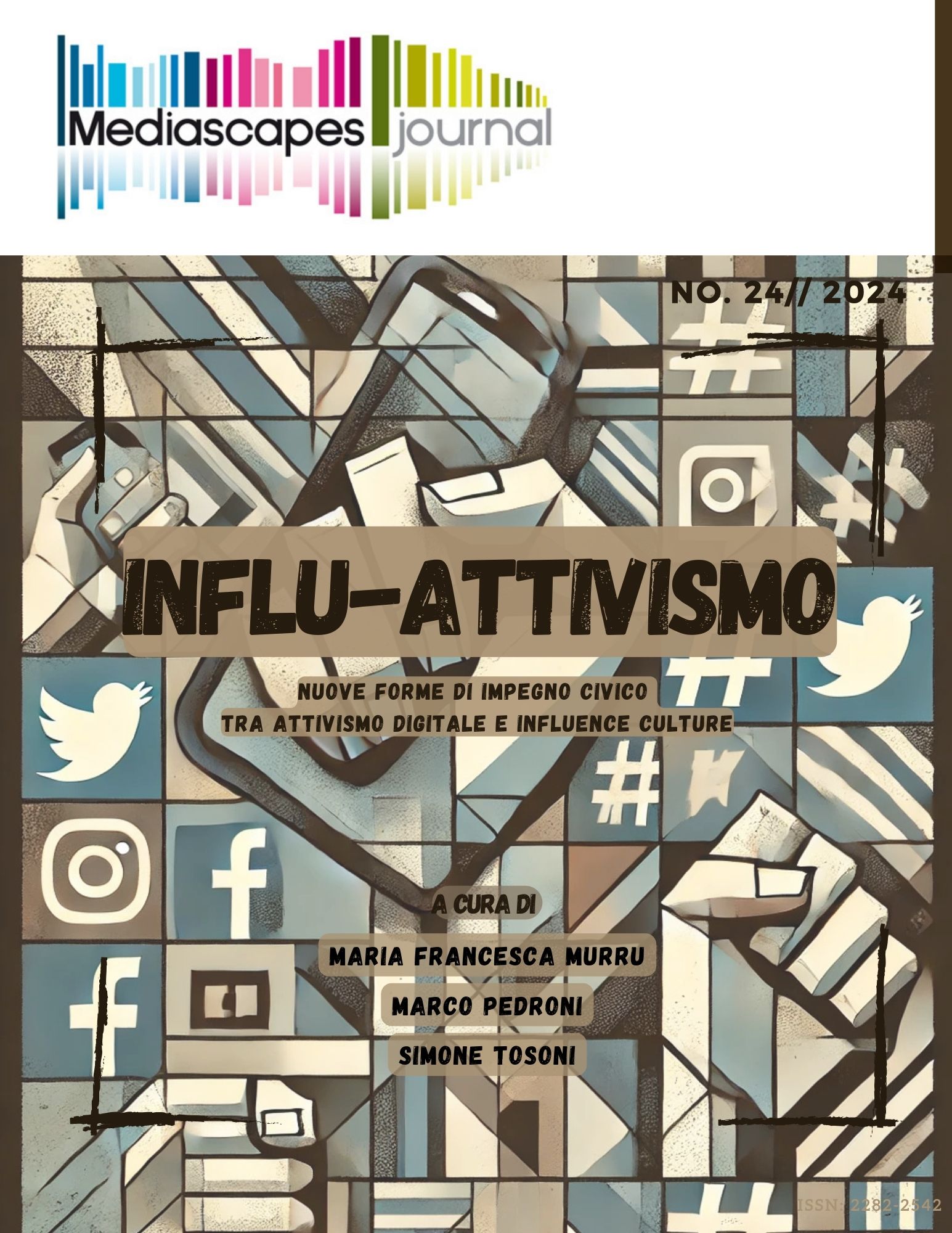A Study in Pink
Le narrazioni digitali dell'influ-attivismo femminista
Parole chiave:
Digital Activism, platformization, influencer, diversity and inclusion, feminismAbstract
This paper investigates influ-activism, defined as the intersection of influencer culture and activism, focusing on feminist and inclusive causes. The phenomenon is framed within the broader context of digital activism and platformization, highlighting the mutual influence between influencers and social media ecosystems. Building on existing literature, the study explores how digital platforms facilitate the rapid mobilization of social movements, while also reshaping activist communication and strategies. The research adopts a netnographic approach, analyzing Instagram profiles of ten female influ-activists aged between 25 and 52. These influencers were selected based on their engagement with feminist, LGBTQ+, and social justice topics. A thematic analysis of 151 posts, supported by NVivo software, revealed distinct generational patterns in their narratives and content strategies. The study identifies two main feminist frameworks: third-wave and fourth-wave feminism. Third-wave influ-activists emphasize gender equality through a critical lens on sexist language and imagery, often focusing on external advocacy. Conversely, fourth-wave influ-activists adopt an inclusive and intersectional perspective, promoting themes such as body positivity, gender identity, and self-expression. This wave also demonstrates a higher degree of commercialization, balancing advocacy with branded content. The findings suggest that younger influ-activists leverage innovative, media-integrated formats to engage audiences and foster change from within the media landscape. The study concludes that influ-activism represents a new form of digital activism, balancing authenticity, social commitment, and commercial interests. It highlights the evolving role of influencers as key actors in promoting social change in the digital age.
##submission.downloads##
Pubblicato
Come citare
Fascicolo
Sezione
Licenza

TQuesto lavoro è fornito con la licenza Creative Commons Attribuzione 4.0 Internazionale.
Gli autori che pubblicano su questa rivista accettano le seguenti condizioni:
- Gli autori mantengono i diritti sulla loro opera e cedono alla rivista il diritto di prima pubblicazione dell'opera, contemporaneamente licenziata sotto una Licenza Creative Commons - Attribuzione che permette ad altri di condividere l'opera indicando la paternità intellettuale e la prima pubblicazione su questa rivista.
- Gli autori possono aderire ad altri accordi di licenza non esclusiva per la distribuzione della versione dell'opera pubblicata (es. depositarla in un archivio istituzionale o pubblicarla in una monografia), a patto di indicare che la prima pubblicazione è avvenuta su questa rivista.
- Gli autori possono diffondere la loro opera online (es. in repository istituzionali o nel loro sito web) prima e durante il processo di submission, poiché può portare a scambi produttivi e aumentare le citazioni dell'opera pubblicata (Vedi The Effect of Open Access).


